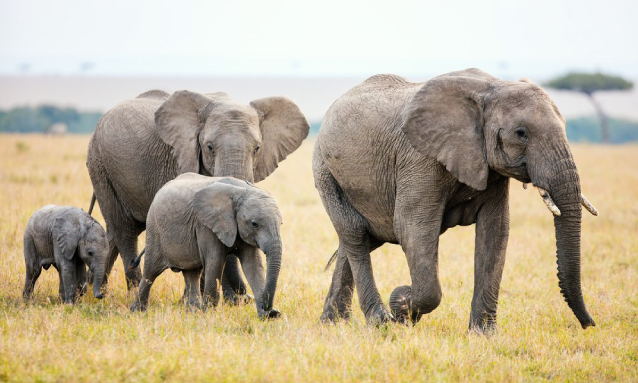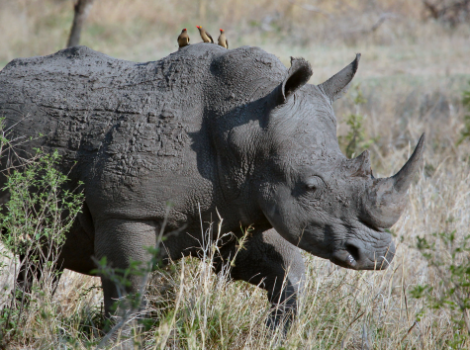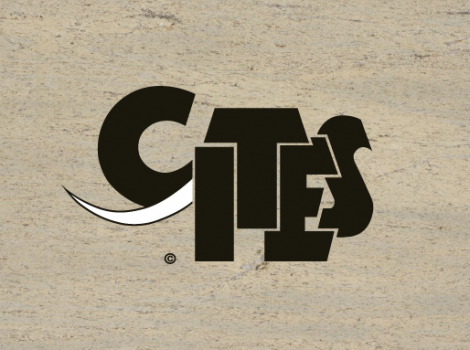
Ever imagined a dazzle of zebras and a herd of cattle grazing side by side against the backdrop of a parched landscape on a sunny wintry day? How about fresh elephant dung lying on sandy ground close to relatively small cow pats? While at it, you may just see an elephant, if not a herd of them, marching down a mountain slope through the village towards the river for a sip and a splash.
No need to imagine all of this. For villagers in Botswana, these are normal sightings, as they are for most tourists who leave the wildlife-rich country mesmerised by them. Many tourists leave the area fulfilled after a gratifying safari experience of Botswana’s phenomenal and vast flora and untamed fauna. But behind the veil of the much sought-after tranquillity of the rich wildlife lie villages and communities living on the fringes of the unfenced game parks and reserves.
After lifting its ban on hunting resulted in a backlash from tourists and activists, the government is trying to reassure communities under siege.
They watch as elephants pass by their homes, always fearful that the huge animals might invade their fields and destroy their crops. For those crossing paths with the animals, and being attacked if they are not lucky enough to escape before getting too close, this is part of villagers’ daily lives. Tourists see very few or none of these animals in destruction mode – Botswana lives up to its promise of a memorable African safari experience.
City Press recently went on a tour of the Chobe National Park in our neighbouring country. The team witnessed the uneasy existence of the wildlife alongside local communities.
Tourists’ Experience
Just after driving out of the gates of Kasane International Airport, which is less than 1km from the unfenced Chobe National Park, a group of international journalists came across the most unexpected thing – a leopard on the prowl. This was just a few hundred metres from the nearest buildings where people were, which is part of Kasane.
It was a pleasing sight for the tourists, but not a good one for residents of Kasane who must always be on the alert, especially when they are walking at night – something that is highly discouraged. The real tourists’ experience started early in the morning with a game drive through Chobe. It culminated in the sight of a beautiful sunrise, with birds singing various tunes from trees – marking a brand-new day in the wild. After three hours of driving, the group went back to the hotel, having seen elephants and two seemingly exhausted lions slowly sauntering past a herd of impalas that appeared ready to flee if the beasts pounced on them.
Later the same day, it was time for a boat cruise on the majestic Chobe River. Surprisingly, the water level of this part along Kasane was still satisfactorily high, compared with the northern parts of the park.
A boat full of tourists got very close to the elephants, buffaloes, hippos and other animals which had descended on the river for a drink. Then there was the other side of elephant activity that many of us had never seen before – two elephants going into the river. At some point, their bodies were completely submerged in the water. Later, only the trunks could be seen as they got closer to the nearby Sedudu Island. One of the elephants later walked past the Botswana flag flying on the island – as if it was claiming ownership of the greener part. This is just part of the African safari experience offered by Botswana in the Chobe, Central Kgalagadi and Okavango Delta, among other areas.
Wildlife Neighbours
About 60 km from Kasane, north of the park and west of the Ngoma border post into Namibia, there are several villages – including Muchenje, Mabele, Kachikau and Kavimbi. Transit Road cuts through Mabele into the parched skyline of the Chobe River. It serves as the fenceless border between Botswana and Namibia.
The road also takes you past the zebras and cows, through mealie fields whose fences have been destroyed by elephants that regularly invade and destroy the crops. Here you are likely to be stopped by caring villagers. They warn visitors not to get too close to the distressed-looking hippos couching or resting in mud puddles which are closest to the much-needed water in this part of the village.
Earlier this year, City Press reported that elephants were attacking villagers in the same area.
Locals faced daily invasions of their fields by the animals. People were attacked and some had been killed by the elephants in areas close to the national parks. The government news agency reported this week that, last Sunday in Maun, a 48-year-old man was killed by an elephant, while two of his relatives managed to escape.
A week earlier, a 28-year-old man was trampled to death by an elephant while on duty at a lodge in Muchenje village. While the wildlife is hugely appreciated for its economic benefits for the communities in these areas, the people are desperate to see animals kept away from them.
“I would be unemployed if it wasn’t for our abundant wildlife and I do not support culling or any killing of animals, but I would rather have them fenced in.
“Animals are precious and are not really meant to share space with human beings and, unless something is done, more lives will be lost,” said a safari tour guide in Kasane.
A hotel employee reiterated this.
“There is drought in the park, and this is good for a safari experience because animals are easily found close to water sources, but [it is] bad for communities nearby as competition for resources escalates. Elephants go into communities to seek food and water, and nothing stops them from doing it because there are no fences,” she said.
Struggling Farmer
A small-scale farmer, Chibeya Longwani, said he was finally getting some sleep. He said he had recently purchased a solar-powered single electric line which runs along the fence next to his field.
“Elephants get electrocuted when they come into contact with it. Before this, we had tried everything – beating drums, putting all sorts of metal sheets and other things on the fence to make a noise and scare elephants away, but they got used to all of it,” Longwani said.
“We then started mixing chilli with elephant dung, added a little bit of charcoal, mixed it with used oil and burnt it at night.
“The elephants moved away when the smoke hit their nostrils.
“But then, elephants are clever – they would walk further and invade the crops from a different direction of the wind,” he said.
“I think dogs have also become friends with elephants as they would not bark any more to alert me when they saw them at night.
“We really appreciate the jobs created by the wildlife sector but it would save lives if fences were built, boreholes drilled inside the park and a lot more done just to keep the wild animals inside the parks, where they belong.”
Longwani’s elderly father, Christopher, said things never used to be like this, that it had been rare for people to be attacked by elephants in the past.
“We grew up around here and because of hunting, elephants played away from human beings, knowing they could be killed, but then hunting was banned,” the father said.
“Now they are driven out of the bush by the drought, and into our villages.”
Politics of Elephants
Botswana is believed to have the highest population of elephants in the world. The country has a herd of about 130 000 against its carrying capacity of about 50 000 elephants.
Former president Ian Khama, a wildlife enthusiast, had banned hunting during his tenure but the ban was recently lifted by the government of his successor, Mokgweetsi Masisi. Khama has openly criticised Masisi for allowing hunting again.
Before the decision to lift the ban was implemented, one of the options considered was the culling of elephants and canning their meat as pet food. However, this week Botswana’s deputy president, Slumber Tsogwane, in a Facebook post, assured the country of the “government’s commitment to resolve the ongoing human-wildlife conflict”.
Tsogwane said the lifting of the hunting ban, which permits controlled hunting, would help control wildlife populations and benefit communities by making them both safe and profitable. He said it was the desire of the government to see communities safe and empowered. Tsogwane heard from the community of Rakops about how “villagers were constantly being attacked by elephants and the situation was worsening”. And elephants destroyed a fence at a local school.
“Residents also complained about the harassment of leopards that attack livestock and people,” the Facebook post said.
Source: city-press.news24.com



